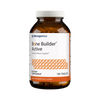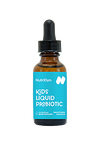Alzheimer’s Alert: High sugar intake may increase risk for Alzheimer’s disease
- News
- 31 Jul, 2021
Total sugar intake may affect cognitive function over time, with higher amounts potentially increasing risk for Alzheimer’s disease, according to study results presented at the Alzheimer’s Association International Conference.
The attached blog has been edited by, Reed Wilson, director of Health and Communications from this original site: https://www.healio.com/news/psychiatry/20210729/high-sugar-intake-may-increase-risk-for-alzheimers-disease
Results showed an inverse relationship between continuous quintile of sugar intake and global cognition, episodic memory, semantic memory, working memory and perceptual speed in adjusted linear random effect models. Across 5,098 person-years of follow-up, the researchers reported 200 cases of Alzheimer’s disease. Crude Cox proportional hazards models showed participants in the fifth quintile of total sugar intake were 1.84 (95% CI, 1.18-2.87) times more likely to develop Alzheimer’s disease as those in the first quintile. The researchers observed a significant linear trend relationship (P = .006).
“Aberrations in glucose metabolism have been observed in Alzheimer's disease, notably the progressive decrease in glucose utilization in the cortex and the reduced expression and binding of insulin and insulin-like growth factor receptors in the cerebellum,” Christopher N. Ford, PhD, MPH, of Rush University Medical Center in Illinois, said during a virtual presentation. “All sugars share the same basic chemical structure, and they include the monosaccharides, glucose and fructose, and the disaccharides lactose, sucrose and maltose. Most sugars readily convert to glucose, whose metabolism is regulated by insulin and the insulin-mediated glucose transporter GLUT4, which is highly expressed in the hippocampus and may play a role in memory.”

Ford and colleagues analyzed data of 837 participants of the Rush Memory and Aging Project to assess the association between sugar intake and cognition. They included data of participants with complete food frequency questionnaire data who were not missing sugar intake, had at least two assessments of cognitive function and did not have dementia at baseline. The researchers evaluated global cognition according to the outcomes of a battery of 19 cognitive tests. They used linear random effects regression models to assess the link between total calorie-adjusted quintile of sugar intake and global cognition, working memory, semantic memory, episodic memory, perceptual orientation and perceptual speed. They included race/ethnicity, age, sex and time interactions for education, total energy, alcohol intake, high-density lipoprotein cholesterol (HDL-C) and a continuous base term for time in the linear random effect models. Further, they assessed the link between total sugar intake and risk for Alzheimer’s dementia, as well as investigated potential effect measure modification and confounding by race/ethnicity, age, sex, HDL-C, total energy, alcohol intake, education and history of diabetes and hypertension using Cox proportional hazards models.
“Future studies should more carefully explore the role of added sugar as well as the potential mediation of the relationship between total sugar intake and cognition through total energy,” Ford said. “Studies have shown a relationship between intake of sugary beverages and preclinical markers of Alzheimer's dementia. In our future directions, we aim to examine the impact of total sugar intake on brain imaging.”
Ford CN, et al. Total sugar intake and cognition in community-dwelling older adults. Presented at: Alzheimer’s Association International Conference; July 26-30, 2021 (virtual meeting).













